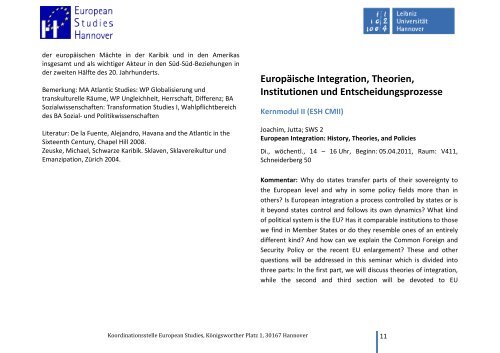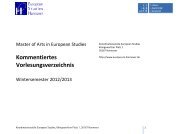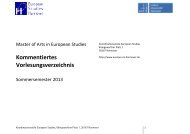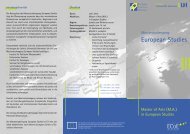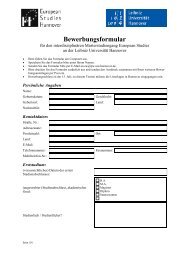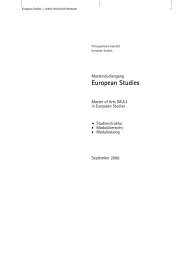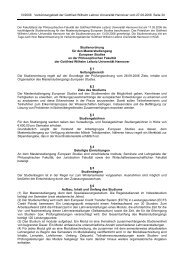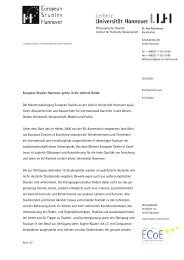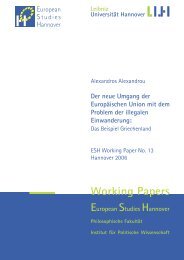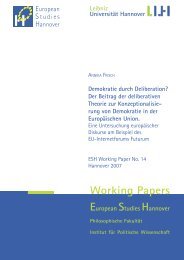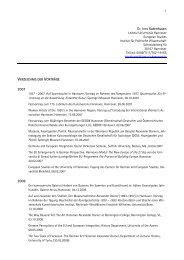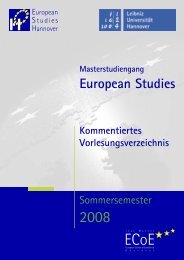Sommersemester 2011 - European Studies
Sommersemester 2011 - European Studies
Sommersemester 2011 - European Studies
Sie wollen auch ein ePaper? Erhöhen Sie die Reichweite Ihrer Titel.
YUMPU macht aus Druck-PDFs automatisch weboptimierte ePaper, die Google liebt.
der europäischen Mächte in der Karibik und in den Amerikas<br />
insgesamt und als wichtiger Akteur in den Süd-Süd-Beziehungen in<br />
der zweiten Hälfte des 20. Jahrhunderts.<br />
Bemerkung: MA Atlantic <strong>Studies</strong>: WP Globalisierung und<br />
transkulturelle Räume, WP Ungleichheit, Herrschaft, Differenz; BA<br />
Sozialwissenschaften: Transformation <strong>Studies</strong> I, Wahlpflichtbereich<br />
des BA Sozial- und Politikwissenschaften<br />
Literatur: De la Fuente, Alejandro, Havana and the Atlantic in the<br />
Sixteenth Century, Chapel Hill 2008.<br />
Zeuske, Michael, Schwarze Karibik. Sklaven, Sklavereikultur und<br />
Emanzipation, Zürich 2004.<br />
Europäische Integration, Theorien,<br />
Institutionen und Entscheidungsprozesse<br />
Kernmodul II (ESH CMII)<br />
Joachim, Jutta; SWS 2<br />
<strong>European</strong> Integration: History, Theories, and Policies<br />
Di., wöchentl., 14 – 16 Uhr, Beginn: 05.04.<strong>2011</strong>, Raum: V411,<br />
Schneiderberg 50<br />
Kommentar: Why do states transfer parts of their sovereignty to<br />
the <strong>European</strong> level and why in some policy fields more than in<br />
others? Is <strong>European</strong> integration a process controlled by states or is<br />
it beyond states control and follows its own dynamics? What kind<br />
of political system is the EU? Has it comparable institutions to those<br />
we find in Member States or do they resemble ones of an entirely<br />
different kind? And how can we explain the Common Foreign and<br />
Security Policy or the recent EU enlargement? These and other<br />
questions will be addressed in this seminar which is divided into<br />
three parts: In the first part, we will discuss theories of integration,<br />
while the second and third section will be devoted to EU<br />
Koordinationsstelle <strong>European</strong> <strong>Studies</strong>, Königsworther Platz 1, 30167 Hannover 11


